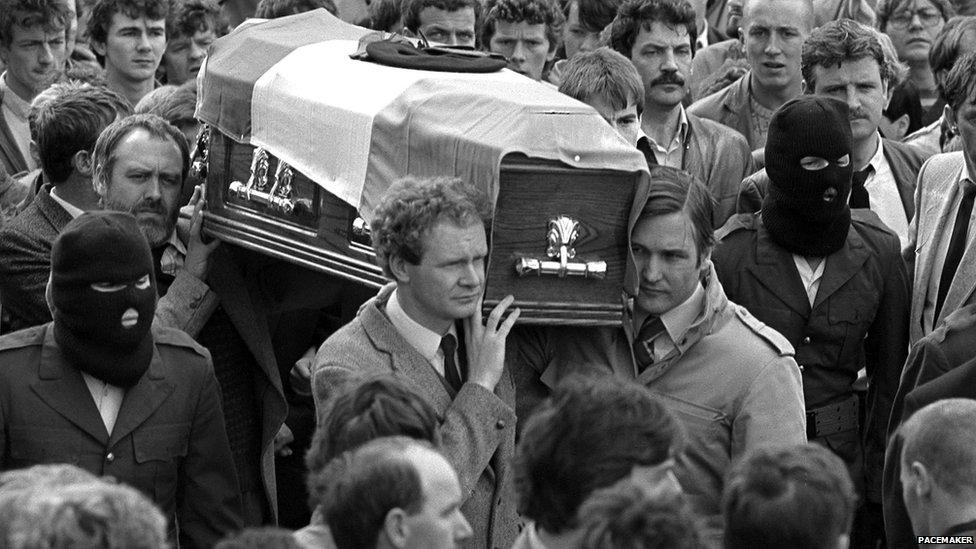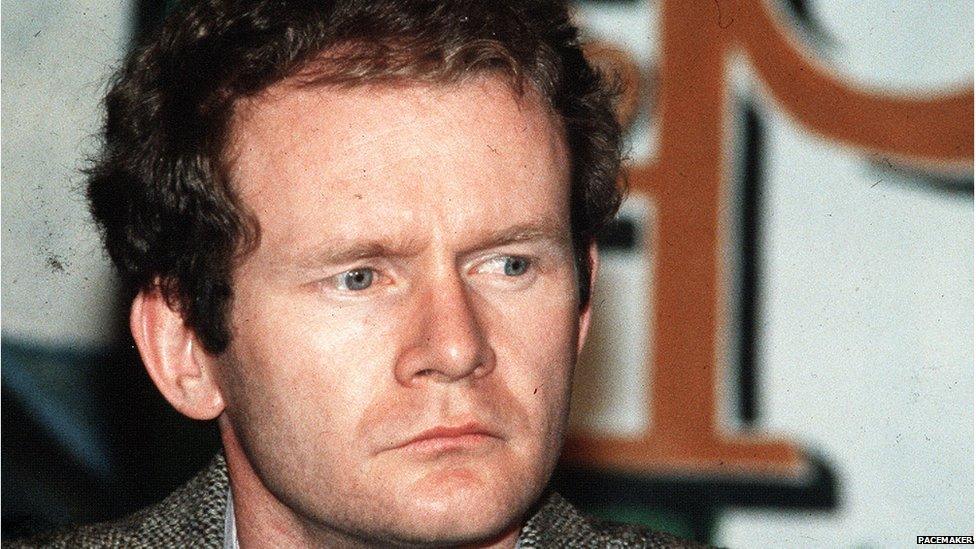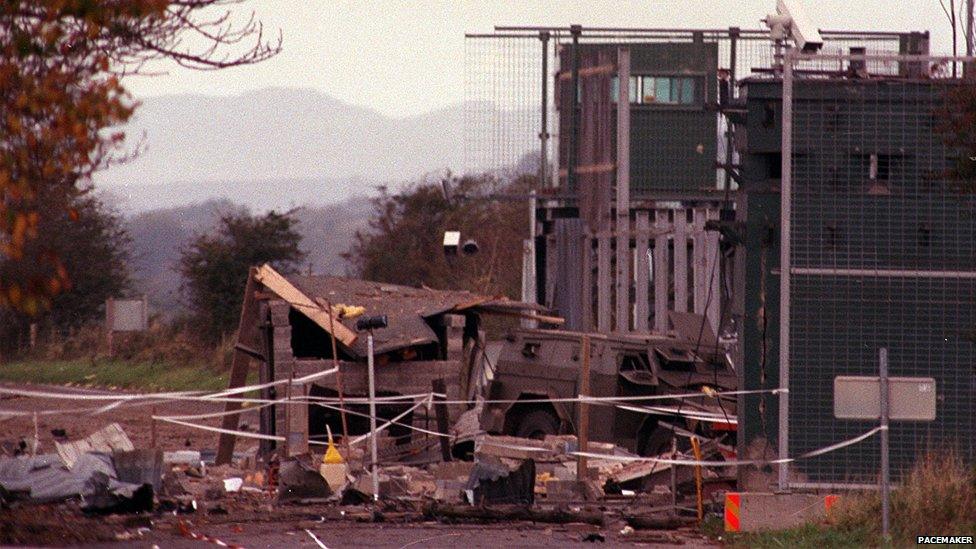Martin McGuinness' IRA past in Derry
- Published

Martin McGuinness carries the coffin at an IRA funeral in 1985
No-one knows how many people Martin McGuinness killed, directly or indirectly.
As a senior commander within the Provisional IRA for many years, there is no doubt there was blood on his hands.
It is known that he was second in command of the IRA in Derry when members of the Parachute Regiment shot dead 13 civilians in the city on Bloody Sunday in January 1972.
Security sources say he went on to become chief of staff of the organisation from the early 1980s right through until the end of the IRA's campaign of violence.
That meant he was also a member of its ruling 'army council', which decided its overall strategy and tactics, and would have approved operational policy.

Security sources say Martin McGuinness became IRA chief of staff in the early 1980s
But his only conviction for terrorist activity was for possession of weapons and explosives in the Republic of Ireland's Special Criminal Court in 1973.
"There is no doubt Martin McGuinness was a key figure within the IRA for almost all of the Troubles, and therefore was responsible for many of its actions, but the fact is there wasn't enough evidence to put him before a court to convict him," says one former senior security source.
"As chief of staff of the organisation for a long period of time he was responsible for its strategic direction and the tempo of its operational activities, so he clearly bore a lot of responsibility for what happened on his watch.
"But while there will be many claims now about what he did, and who and how many he may have killed, it's impossible to be definitive."
'Advanced knowledge'
However, several well-placed security sources agree that Martin McGuinness would have had advanced knowledge of virtually every Provisional IRA attack in his home city of Derry after he was appointed chief of staff.
"The bottom line is that nothing happened in Derry without Martin knowing about it," says one.
"He wouldn't have been involved in planning every attack, but he would have been told what was planned. If he didn't object, the attack went ahead. If he objected, it didn't. It was that simple, he had a veto."

The Coshquin checkpoint where Patsy Gillespie and five soldiers died
One of the attacks police sources have claimed Martin McGuinness authorised was one of the most notorious of the Troubles.
In October 1990, Patsy Gillespie, a Catholic who worked in a local army base, was taken from his home and strapped into a van containing 1,000lbs of explosives.
Labelled a "collaborator" by the IRA, he was told to drive the van to an army checkpoint at Coshquin near the border, while his family was held hostage.
When he reached his destination, Mr Gillespie was not given time to escape. The bomb was detonated by remote control, killing him and five soldiers.
"Given the way Martin McGuinness controlled the IRA in Derry at that time, it is inconceivable that he would not have had prior knowledge about such an attack because of its scale and the huge public outcry the IRA would have known would follow," says another former senior security source.
"He may not have drawn up the plan, but he would have known, and could have intervened to stop it."
Alleged informer
The family of a Derry man shot dead by the IRA as an alleged informer in 1986 have consistently claimed Martin McGuinness was responsible for luring him to his death.
Frank Hegarty had fled to England after becoming aware that the IRA believed he was an informer.
His mother and other family members have said Martin McGuinness later visited their home and gave a personal assurance that he would be safe if he came and met the IRA.
A short time after the meeting he was found shot in the back of the head.
A tape containing his interrogation and admissions that he had worked as an informer was later delivered to the Hegarty home.
Consistently rejected
Martin McGuinness consistently rejected the family's version of events, and insisted that he told them Frank Hegarty should not meet the IRA if he was an informer.
A former senior security source familiar with Martin McGuinness's career within the IRA said that over the years he had transformed from one its most militant leaders to a restraining influence.
"In his early days, Martin was a fairly hot-headed young revolutionary who helped drive the IRA to be more aggressive and active," he says.
"But in the latter years of the Troubles, as the republican movement moved from violence to politics, he was a calming and restraining influence who definitely saved lives because he stopped things happening."